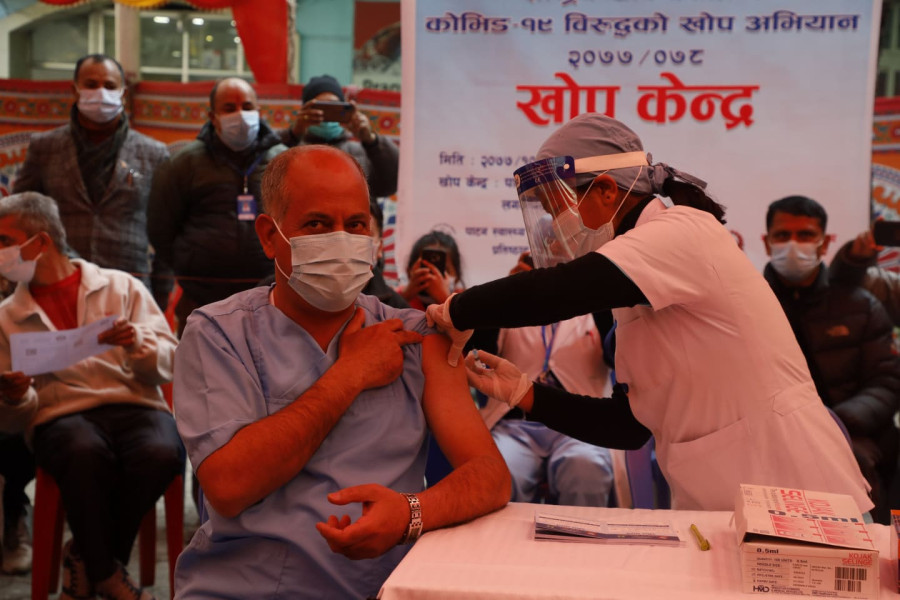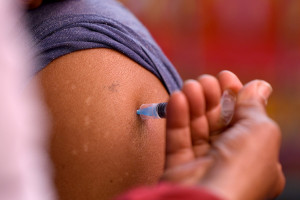Health
Nepal launches its Covid-19 vaccination drive starting with frontline and healthcare workers
Prime Minister KP Sharma Oli inaugurated the vaccination drive through a video conference on Wednesday.
Post Report
Nepal on Wednesday rolled out its vaccination drive against Covid-19, a little over a year after the country reported its first coronavirus case.
Prime Minister KP Sharma Oli inaugurated the vaccination campaign against Covid-19, which has so far killed 2,017 and infected 270,092 across the country, through a video conference from Baluwatar.
According to officials, around 430,000 frontline workers–health workers, supporting staffers at health facilities, female community health volunteers, security personnel, sanitation workers, elderly people living in care homes, and prisoners–will be inoculated in 65 districts across the country.
The vaccination drive has been launched with the one million doses of Covid-19 vaccine that India provided to Nepal last week under grant assistance.
India provided one million doses of the vaccine jointly developed by the University of Oxford and the pharmaceutical giant AstraZeneca and produced in India by the Serum Institute of India, the world’s largest vaccine manufacturer.
Dr Sagar Rajbhandari, director of Sukraraj Tropical and Infectious Disease Hospital, Teku was the first of the frontline workers to receive the jab.
The government is planning to procure four million doses of additional vaccine within a month, most probably the one manufactured by the Serum Institute of India.
The India-manufactured vaccine, named Covishield, is the preferred choice of Nepali authorities as the existing storage and transportation infrastructure used in the country to immunise children can be utilised. Covishield vaccines have to be stored in temperatures between 2 to 8 degrees Celsius.
Read: Vaccine hesitancy poses challenge for Nepal’s campaign against Covid-19
Over 600 health workers have been trained to run the immunisation campaign. Booths with the capacity to immunise 200 people have been set up at the inoculation centres.
In Kathmandu Valley, jabs will be administered from 17 hospitals–Sukraraj Tropical and Infectious Disease Hospital, Bir Hospital, Tribhuvan University Teaching Hospital, Patan Hospital, KIST Medical College, Civil Hospital, National Ayurveda Research and Training Center, Paropakar Maternity and Women’s Hospital, Army Hospital, Police Hospital, Kathmandu Medical College, Bhaktapur Hospital, Shahid Dharma Bhakta National Transplant Center, Nepal Medical College, Nepal APF Hospital and in Shahid Gangalal National Heart Center and Anandaban Hospital.
The number of people being vaccinated is less than 1.5 percent of the total population. Even after the first phase is over, around 70.5 percent of the population will not be inoculated.
The government has said it is committed to immunising 72 percent of the total population. The vaccine cannot be administered to children under 14, whose population in Nepal is 28 percent.
The first phase of immunisation is taking place as per the Health Ministry’s plans to inoculate the population in a staggered manner based on priority. After the frontline workers, the next people in line are those above 55 years of age–the death toll among members of this age group is highest. Everyone between 40 to 55 years will be immunised in the third phase and the remaining population will be inoculated in the fourth round.




 9.91°C Kathmandu
9.91°C Kathmandu














